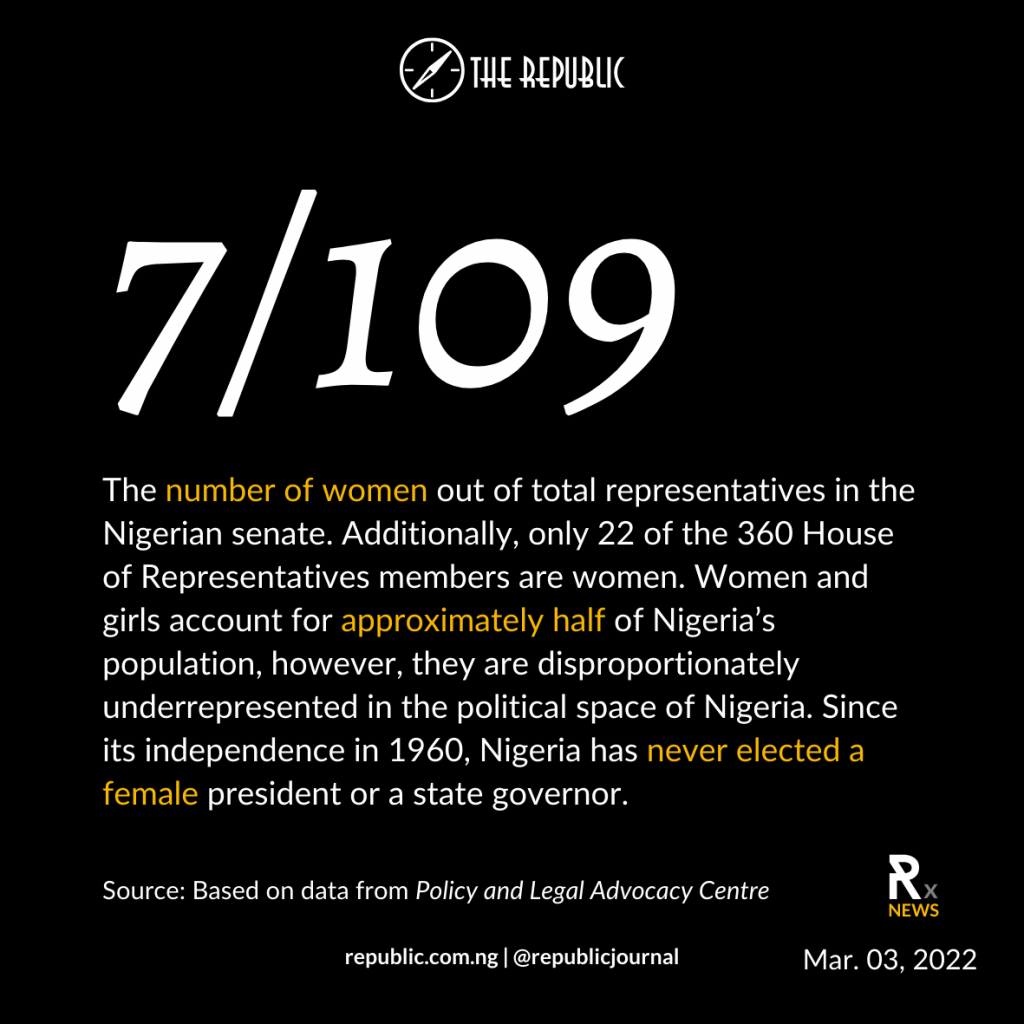Since its independence in 1960, Nigeria has never elected a female president or a state governor.
Yesterday, hundreds of women gathered at the National Assembly in Abuja to protest the rejection of five gender equality bills aiming to promote women’s inclusion and representation in Nigerian politics. The five proposed bills were a part of the latest review by the legislature to amend the 1999 constitution and include:
-
-
- Granting citizenship to foreign-born husbands of Nigerian women (the Nigerian constitution already offers automatic citizenship on foreign-born wives of Nigerian men);
- Granting Nigerian women indigeneship of their husband’s state of origin after 5 years of marriage;
- Granting 35 per cent appointed positions for women in cabinets (the senate passed a bill granting 20 per cent for women).
- Granting women affirmative action in party administration and leadership (there will be a number of favours for women in political parties or leadership positions in general).
- Granting specific seats for women in the National Assembly.
-
According to Chioma Agwuebo, executive director of TechHerNG, the senate’s decision to reject the bills is disappointing. ‘They shut the bills down with a vehemence that actually scares us,’ Agwuegbo told Al Jazeera. ‘The reason why women are out today and tomorrow and keep having this conversation is because women are not just good only for votes. You cannot lead us without us.’ For months Agwuebo and other women activists have been deliberating and communicating with legislators but all of their efforts was ‘all for nothing.’
A statement by Women in Nigeria, a coalition of women-focused NGOs in the country, stated that: ‘It is particularly sad that in a month globally dedicated to celebrating women worldwide, our NASS has chosen to deny women basic human rights. These are rights enjoyed by every Nigerian except women… Nigerian women, therefore, demand that all gender bills be reconsidered. Ultimately, our demands will benefit not just women but Nigeria as a whole.’
Women and girls account for approximately half of Nigeria’s population, however, they are disproportionately underrepresented in the political space of Nigeria. Currently, only seven out of 109 senators and 22 of the 360 House of Representatives members are women. According to Reuters, elections in Nigeria are an indicator of how men dominate politics in the country.
Since its independence in 1960, Nigeria has never elected a female president or state governor⎈
Recommended Reading
Here are some Republic articles to read for context on low women representation in Nigerian politics:
The views, thoughts, and opinions published in The Republic belong solely to the author and are not necessarily the views of The Republic or its editors. We want to hear what you think about this article. Submit a letter to the editors by writing to [email protected].




